
by Dr Alex Jimenez DC, APRN, FNP-BC, CFMP, IFMCP | Gut and Intestinal Health
The microbiome is a crucial part of the body and how effectively it functions.� The microbiome plays a significant role in the immune system, the digestion of food, how the body metabolizes drugs, detoxification, vitamin production, as well as protection from foreign innovators. However, just like many other parts of the human body, it is greatly influenced by stress, environmental factors, and sleep which can ultimately impact intestinal permeability.
Ideally, the best functioning microbiome is diversified. The more diversity a microbiome has, the more stable and resilient to antibiotics it becomes. In addition to this, a diversified microbiome also has stronger pathogen resistance.


The microbiome is filled with many different bacteria strains that all play essential roles in keeping the gut healthy and controlling intestinal permeability.
- Bacillus is a spore-forming bacteria whose major role is the production of B and K2 vitamins in the gut.
- Clostridia compromise about 10-50% of the microbiome and are anaerobes that are not found in probiotics. These thrive on high fiber and polyphenols.
- Akkermansia makes up 1-3% of the microbiome and helps to reduce inflammation and protect against inflammatory bowel disease.
- Lipopolysaccharides are bound on gram negatives residing in the gut and protecting the bacteria from bile salts. (Lipopolysaccharides are normal in the gut, but they are not normal in the bloodstream)
The main reason it is important to have a diversified and healthy gut is to avoid problems with intestinal permeability or “leaky gut syndrome”.� A leaky gut refers to how easily substances that are not fully digested pass through the intestinal wall. This occurs when the tight junctions of the walls become loose, allowing the gut to be more permeable.� This is how bacteria and toxins pass from the gut into the bloodstream, causing inflammation and other autoimmune diseases.
Keys to a healthy gut:
- Eat more organic fruits, vegetables, and fermented food
- Try to limit the amount of food that is boiled as boiled foods contain fewer polyphenols
- �Supplements such as Vitamin D, Vitamin C and Omega 3’s
- Detox: sauna, yoga, meditation, and regular exercise
- Prebiotics and Probiotics
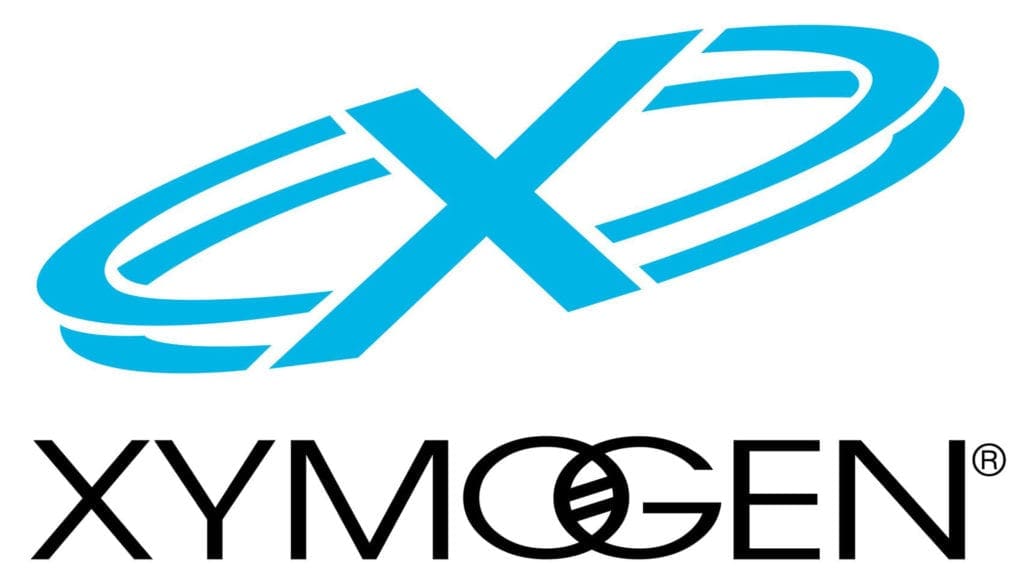
It is important to remember that the best thing for a healthy gut is diet. Suppliments and pills can help, but in the long run, a diet is the most important and influenctial factor to the gut. A gut healthy diet will aslo help to maximize liver detoxifaction. If you do not know where to begin, I recommend getting a gut zoomer blood test and consulting with a doctor about what probiotics and diet are best for you. – Kenna Vaughn, Health Coach�
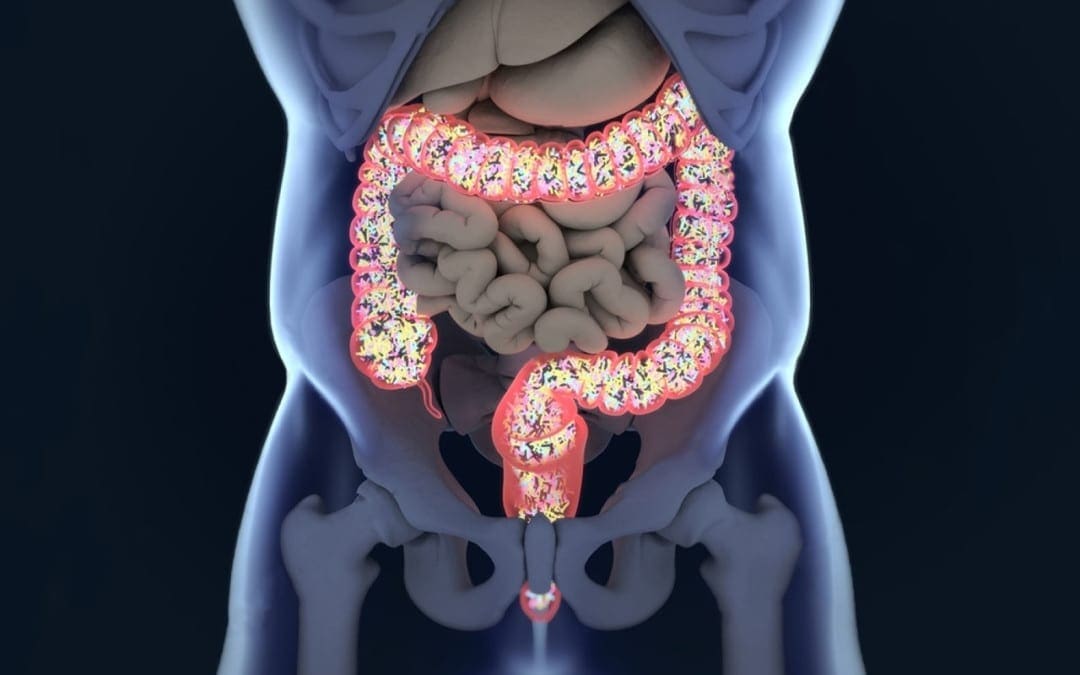
by Dr Alex Jimenez DC, APRN, FNP-BC, CFMP, IFMCP | Gastro Intestinal Health, Gut and Intestinal Health
Now and days, mostly everyone has a gluten sensitivity or a gluten allergen in their bodies. This could happen to anyone whenever they are eating gluten-contained food or products and suddenly feel unwell or their gut acts differently throughout the day. Or they actually get tested by their physicians and realizes that they have celiac disease. In the last article and the previous one after that, we talked about the 8 products that have hidden gluten in them; as well as the introduction of the wheat zoomer we use for our patients.
Here at Injury Medical Clinic, Dr. Alexander Jimenez consults with our patients about certain zoomers that can actually aid the patient�s body. In this article, we review the factors that affect test results such as medication and fasting after taking the Wheat Zoomer, as well as, focusing heavily on the mechanism of the intestinal permeability, the structure and function of the epithelium. We also focus about important immunomodulatory metabolites, epithelial cell types and the roles in the epithelial barrier.
Intestinal Permeability
Let�s start with the mechanisms of intestinal permeability. The main purpose of the intestinal epithelium is to keep the good things in and the bad things out. While the system is complex and ever changing, it still sends out a message to the host and maintain balance both physical and biochemical as a protective barrier.� There is an abundance of antigen sampling to regulates the flow of nutrients in the host�s body, as well as, keeping an eye on the body by the mucosal immune system. Not only that, if you have an injury or an acute inflammation, the intestinal epithelium will support tissue repair by coordinating with microbiota.
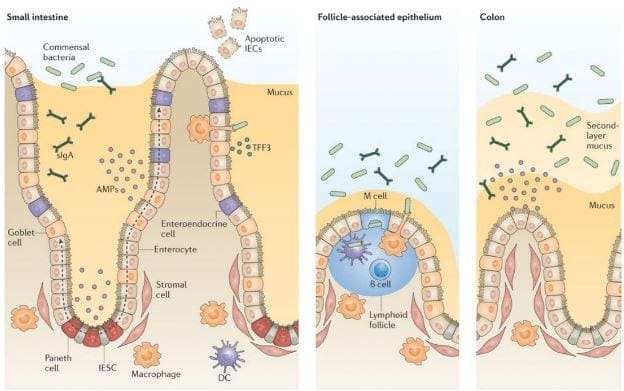
Another thing that the epithelium does is that it responds to the microbial signals that will make our bodies tolerate any continuous exposure to commensal bacteria. But we do want to keep the good bacteria in our bodies but get rid of the bad bacteria, so our bodies feel good. The intestinal epithelium also convey microbial signals to the mucosal immune cells, while promoting a coordinating immune response to battle against commensal bacteria and the enteric pathogens, since these two microsomes should not be in places they are not allowed in.
While the epithelium is battling with the bad bacteria in our system, it also regulates the B and T cell response to either, control inflammation, squash inflammation, or cause inflammation on the intestinal barrier, depending on the situation. Plus the epithelium locally regulates the immune response at the intestinal barrier by influencing innate and adaptive immune responses to the body�s intestines.
However, if there is something disrupting the intestines, like chronic inflammation or leaky gut; the epithelium barrier can be compromised. In order for us to fix a leaky gut, we must learn what is causing the inflammation in the first place. The epithelium is home to many microbes, immune cells and can determined if we need the immune response on any harsh exposure. If we can learn more about these mechanisms, then we can calm down the inflammation by resetting it back to its calm, natural state.
But the immune cells in our intestinal epithelium can also cause disruption on our gut by leaking out of the protective barriers and attacking the pathogens anywhere in our system. So epithelial permeability can not only cause inflammation but prevent it in our intestines, which is both good and bad depending on the situation.
Dr. Alexander Jimenez consults with our patients with natural alternatives of healing inflammation in their gastral intestines.� If he can find the sources of what causes the inflammations in your gut, then he can work with aiding them with functional medicines while informing you what they can do to heal your gut.
Now let�s looks at the intestines and the many microsomes that they contain. Here are some microsomes we will be discussing as well as what is their key roles in the intestines; so we can figure out how to prevent a leaky gut.
�
The Mucosa
This is in both the small intestines and the large intestines and are completely different. The small intestines has one mucus layer and has limited microbes inside it�s mucosa, while the large intestines has an attached inner mucosa and a loose outer mucosa. The mucosa plays an important role in the intestines because it can tell �Friend� from �Foe� in the immune system.
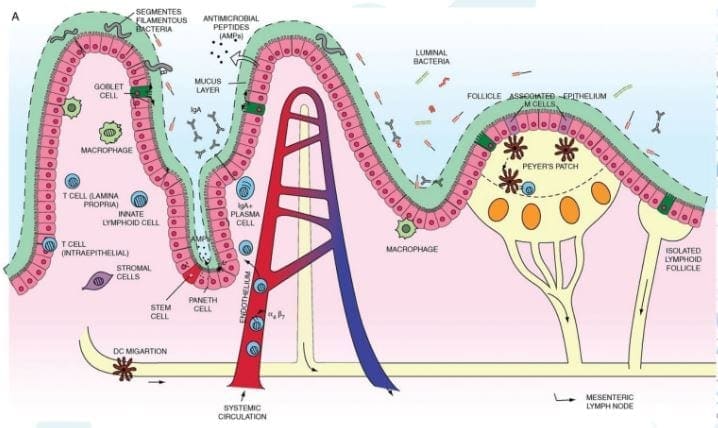
Important Tight Junction Proteins
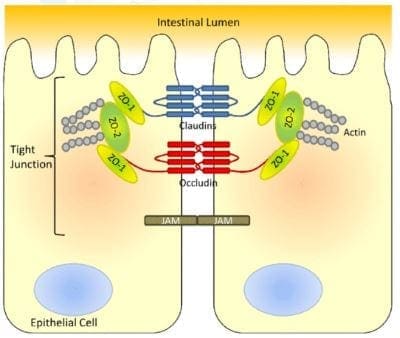
The tight junction is an important function in the intestinal epithelium as it is one of the barriers that separates what comes in and what comes out in our gut.
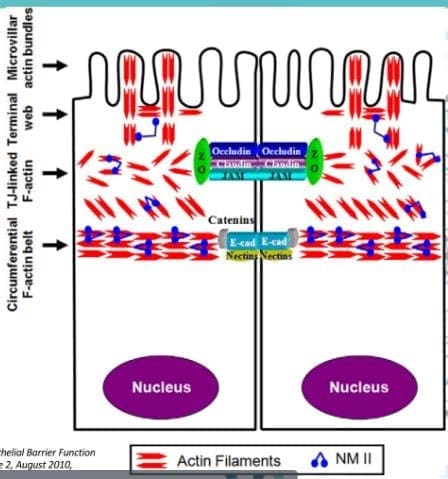
Actin: Are the structure and functions of tight junctions. But they constantly disassemble and reassemble actin filaments if they are anti-Actins. It is controlling the tight junctions cells as it acts like a contractable belt by pulling or contracting the junctions in the intestinal cells.
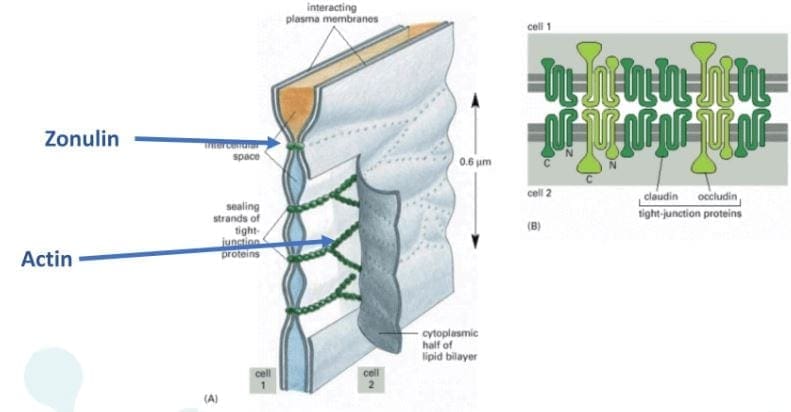
Zonulin: They are the �gatekeeper� proteins that are responsible for opening or closing the tight junctions. Zonulin acts the mortar of the intestines and is associated when gluten sensitivity is present, if there are low counts of zonulin thus causing inflammation.
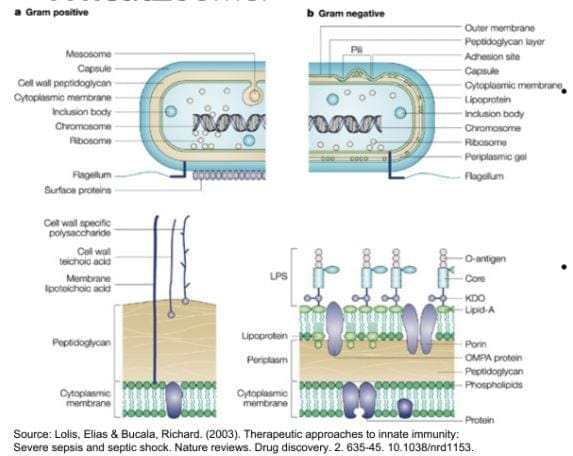
LPS(Lipopolysaccharide): These sent out a signal to the tight junction permeability as they find signs of bacterial endotoxin by translocating across the epithelial barrier and entering circulation. LPS is made up of gram negative bacteria in the GI tract. LPS outside the epithelial cell wall and reacts to fatty acids, which can lead to obesity for individuals.
Cell Receptors Involved in the Barrier Integrity
These cells are protectors of the epithelial barrier walls as they strengthen the immune intolerance and digestive tract, as well as causing or preventing inflammation when necessary.
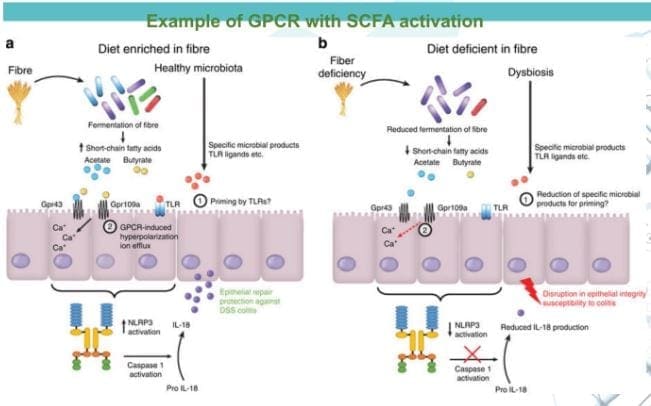
G Protein Coupled Receptors (GPCRs): GPCRs are the main players of the immune system in the epithelial system. A wide variety of substances can bind with GPCRs depending what the substances are. Short chain fatty acids, omega-3�s and any food that we eat is fermented by our gut and stimulate repair on the epithelial barrier. However if there is a consumption of low or zero-fiber in our diet, the food will not be fermented and causes inflammation.
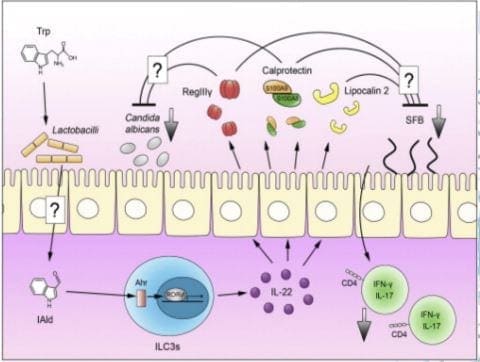
Aryl Hydrocarbon Receptors (AhRs): AhRs interact with a range of aromatic hydrocarbons like food and microbes both in and out of the gut. These receptors respond strongly to compounds found in cruciferous vegetables, thus preventing a heighten immune reaction and reducing epithelial damage as well as promoting functioning intraepithelial lymphocytes (IELs).
But if we are not eating enough cruciferous vegetables, the IELs are being produced less, the epithelial barrier is compromised and will cause inflammation.
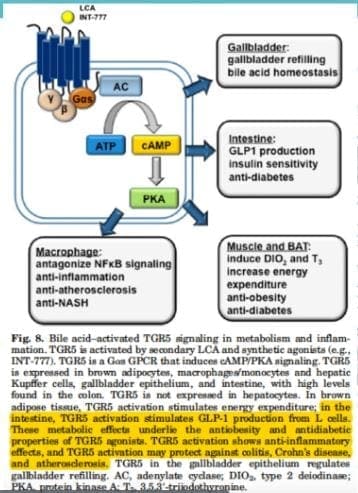
Bile Acid Receptors (BARs): BARs recognize primary and secondary bile acid. The primary bile acids comes from the liver and then transformed into secondary bile acids by microbes. BARs play an important role in in metabolic regulation, however if there is suppression of bile in the GI tract; then the intestinal barrier is more susceptible to destruction. However, if you are producing a low bile count or obstructed bile flow, it can be the result of the microbes translocating to the small intestines and causing mucosal inflammation, SIBO and leaky gut.
Epithelial Cells Involved in the Barrier Integrity
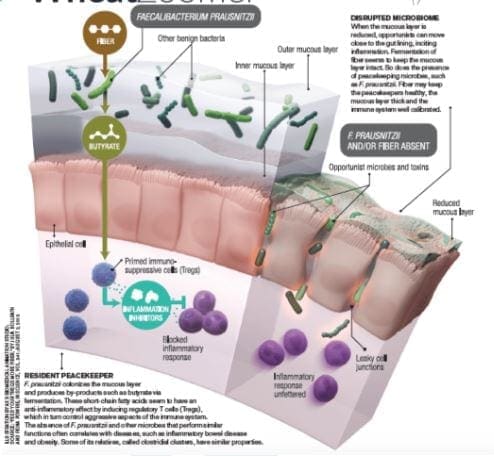
These cells are very important to the intestinal epithelial barrier as they can either protect the barrier walls or can lead them to their demised.
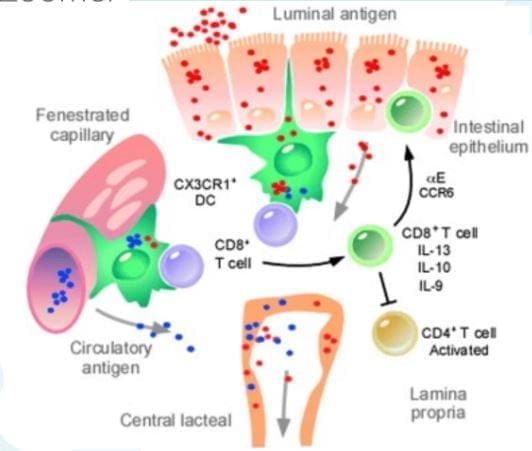
Dendritic cells: Dendritic cells are presenting antigen cells that are found the epithelial layer. These cells sample and present antigens it to Tcells, thus activating immune response. Dendritic cells help the Tcells tell the difference between self and non-self because if we eat commonly consumed foods or foreign antigens are present, we don�t want our immune system to rise up�most of the times.

Goblet cells: Goblet cells are very important of the epithelial barrier because they provide the mucus barrier that coats and protects the intestinal walls. Without this mucus barrier, we will sick and any harmful bacteria will come in and out of the intestinal barriers.
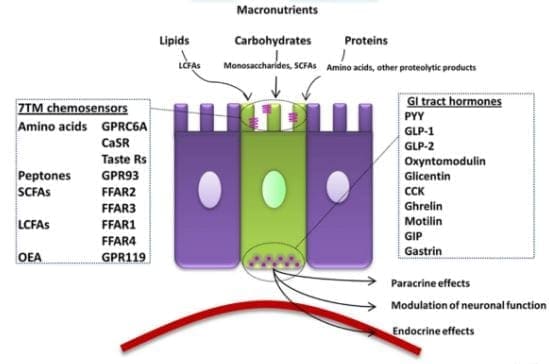
Enteroendocrine cells: Enteroendocrine cells host receptors and produce a wide range of hormones, enzymes and neurotransmitters that affect or control our appetite, digestive functions, motility and interacts with microbial communities. However, these cells can either be beneficial or not if the host diet is in played.
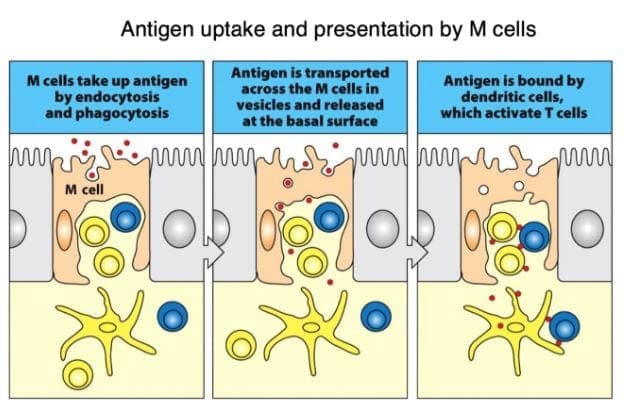
M cells: Microfold cells or M cells are located over the Peyer�s patches and they constantly sample outside the intestinal epithelial barriers for any microbes that pose a threat. They also present antigens from the outside to the dendritic cells to activate the Tcell response, as well as consuming the antigen by neutralizing it. Without the M cells, we risk of losing tolerance to microbes, thus causing inflammation on our intestinal barriers.
Conclusion
In total, we now have a deeper knowledge of our gut system as well as taking an in depth look on what our intestinal gut goes through to stop inflammation. In order to stop leaky gut, we must change our eating habits gradually when we want a healthier life. Dr. Alexander Jimenez does discuss to our patients the importance of protecting our gut with functional medicine as well as, encouraging our patients to take that first step into a healthy lifestyle.

by Dr Alex Jimenez DC, APRN, FNP-BC, CFMP, IFMCP | Gut and Intestinal Health
Ah� the bathroom, nature�s thinking room. The one place where we create many thoughts that turn into ideas, a place to read, and the place where we want peace and quiet. Known as many different names,� the bathroom is the one place where we flush out our systems after consuming quantities of food. However, did you know that the bile inside your body plays a huge important role in our system?

Bile is a vital body fluid that absorbs nutrients in our small intestines and flushes the toxins out of the liver. Bile continuously is being produced in the liver and then stored in the gallbladder. It also works as a signal molecule for both inside and outside the liver as well. When the liver and bile is disruptive, it can cause many problems for the body.
TCM (Traditional Chinese Medicine) stated that the liver is known as the �master organ� and it is the causative factor in many of the body�s ailments. When there are major imbalances on our bodies, it causes liver dysfunction. In TCM, the liver actually helps with detoxification; enzyme, hormone, and bile production, immune cell activation and stores vitamins and iron.
How Does the Liver Work?
The liver�s main job is to get rid of bile in our internal system. Not only that but the liver plays an important role by distributing nutrients by converting those nutrients into metabolizing energy. As well as storing vitamins and minerals for later use.
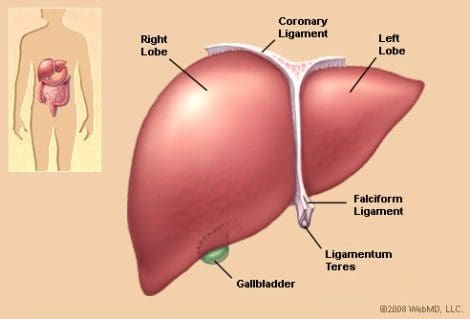
However, in today�s fast-paced society, the liver can�t perform right as we don�t give the liver it�s essential nutrients that it needs to function. Which causes blockage in the gallbladder, diseases, and digestive issues.
The Importance of Bile
As stated, bile has many functions that play an important part in the liver. Bile actually lubricates our small intestines and stool for easy disposal. But when there is less lubrication in our small intestines and stool, it can lead to constipation and too much lubrication can lead to diarrhea.
There is also a chance of blockage in bile where it can increase the accumulation of toxins in our body which creates oxidative stress and back up our waste matter. When we eat too much food and it�s still in our intestines, it will ferment and causes a leaky gut as toxic gasses penetrate the intestinal lining.
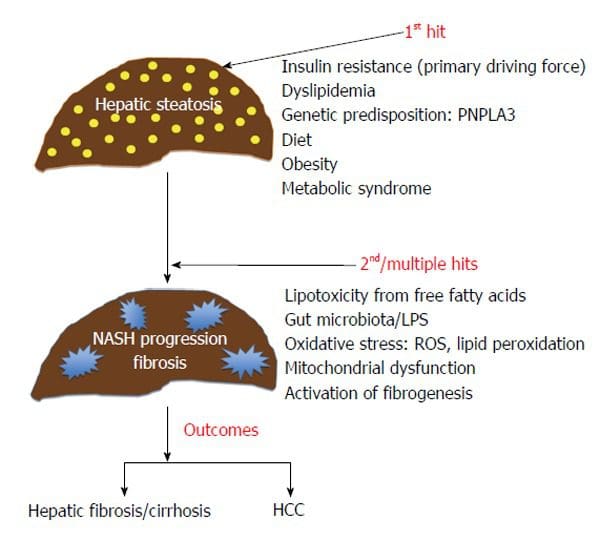
Another function is that the bile salts break down and processes fats that are essential for weight loss. Bile can also transport toxins out of our liver to feces while keeping everything free-flowing. When there isn�t enough bile being produced, cholesterol stones are forming.
Vitamins like, vitamin A, D, E and K can break down the excess fat in the body if there is an adequate amount of bile. But if patients had gallbladder surgery must be taken to account that they don�t have a bile storage system, and must manage their bile production.
Liver Functions for Hormonal Balance
Did you know that the liver and thyroid have a synergistic relationship? That�s because the T4 is converted to T3 for the liver. It turns out that the T3 is more potent in the thyroid hormone and is metabolized from iodine. When a patient has a thyroid problem, it could actually be the result of a bile or liver malfunction.
When our mood and mental state is imbalanced, it can be the results of a sick or fatty liver. Due to the fact that the liver influencing on our hormones. Because our mental state and our moods correlate to our hormones, it is important to keep the liver healthy but also finding a good place in our state of mind to make sure that we keep our liver healthy as well.
Signs of Liver Imbalance
There are many symptoms that can cause the liver to be imbalanced and can contribute to a low bile count:
- Constipation, bloating, gas
- Leaky gut
- Fatigue
- Weight gain
- Irregular stool
- High cholesterol
- Tendon problems
Ways to Support the Liver and Produce More Bile
Now that we understand what symptoms that causes our liver to be imbalanced, here are 5 ways to make sure that you are protecting your liver and producing a healthy amount of bile.
- Removing Causative Factors
The first and foremost factor in protecting your liver is to get rid of the causative factors that are harming your liver. Things like an excessive amount of lactate in coffee, sugars, alcohol, and processed foods can disrupt your liver�s health. It�s ok to enjoy those things sparsely but, if you are trying to maintain a healthy liver, it�s best to ease up on the consumption of those lactate factors as much as possible.
- Eating Liver Supportive Foods
There are many foods that actually help support the liver. Grapefruit, blueberries, cranberries, prickly pears, and bitter greens are just some of the foods that can actually help your liver and bile production. We here at Injury Medical Clinic, always inform our patients the importance of whole nutritious food to heal and repair what ailments in our patient�s bodies.
- Practicing Deep Breathing Exercise
Practicing deep breathing exercises have been known to lower stress and diaphragmatic breathing exercises is no exception. Since the liver is positioned below the diaphragm, when we do any deep breathing exercises; these motions actually massages our liver and stimulate bile production. Hence why singers do these exercises when they are getting ready to perform. They are massaging their liver without even knowing it.
- Intermittent Fasting
Since we now know that bile is continuously being produced in the liver and being stored into the gallbladder when we are not eating, intermittent fasting is a good way to increase the bile production in the gallbladder. Plus it has been known for weight loss and beneficial for the body to heal while getting rid of the junk in our cells.
- Stress Less
Stress is one of the huge factors that can either cause our body to improve our immune system or causes the body to chronic illness. Emotional stress is known to cause a huge burden to our organs because it is tied to our hormones. When we get emotionally stressed, our liver cannot get rid of the excess toxins and hormones.� So we have to find ways to de-stressed ourselves so we won�t hurt our organs, especially the liver.
Conclusion
So when it comes to our liver, we must make sure that the bile that we are producing is turning into energy all the way to feces. So, when we have to go to the bathroom we can let out the toxins naturally without any complications. If we can lower the factors that are causing us to have an inadequate bowel movements, then we can improve our body�s ability to detoxify.
NCBI Resources
Western diets, high in sugar and fat, cause liver inflammation, especially in males, according to a new animal study in�The American Journal of Pathology. Inflammation was most pronounced in males that lacked farnesoid x receptor (FXR), a bile acid receptor.

by Dr Alex Jimenez DC, APRN, FNP-BC, CFMP, IFMCP | Gut and Intestinal Health, Oxidative Stress
Ever wondered why you feel sluggish from a long day? Or feel sick to the stomach when you ate something bad or overindulged on your favorite food? Could it be that your gut is showing signs of stress and discomfort due to certain habits that you may encounter and didn�t even know about it?
In our previous article, we talked about the six types of food that our gut needs to be healthy. Since our gut contains trillions of microbiomes, both good and bad, these microbiomes play an important role in our overall health. A healthy microbiome improves our gut health, heart health, brain health, controls our weight and regulates our blood sugar. With the good bacteria in our gut, the bacteria benefit us with a good digestive system and destroys the harmful bacteria. But certain lifestyles and diet choices can actually increase the bad bacteria and lower the good bacteria and overall health.
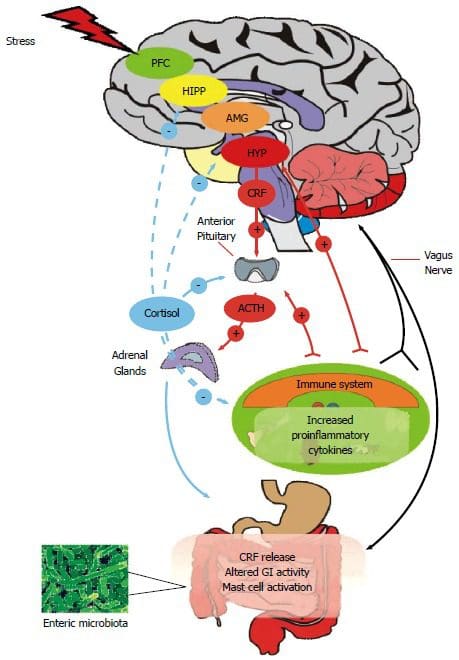
Here are five surprisingly lifestyle choices that are hurting your gut:
Not Eating a Wide Range of Foods
Our gut plays an important role in our overall health. When we eat good whole foods, our gut is happier; we have more energy to complete any task that is thrown at us and we are getting nutrients for our gut flora. However, during the past couple of decades, we have been leaning more into processed foods due to the economic pressures of increased food productions. FOA stated that �75 percent of the world�s food is generated from only 12 plants and five animal species� and that is very bad to our gut flora.
Here at Injury Medical & Chiropractic Clinic, we inform our patients about the importance of eating nutritious, whole foods to promote not only a healthy gut but a healthy mind. When the body gets introduced to a wide variety of whole foods (with a high fiber content), our gut starts to repair the damage of processed food that we may have consumed internally.
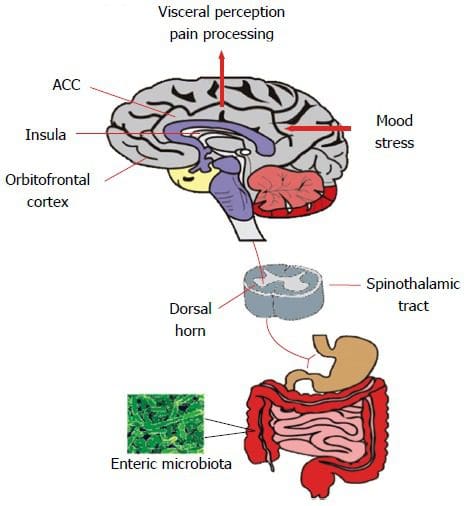
Inadequate Prebiotic Consumption
Prebiotics are the fibers that don�t need to be digested and can pass through our gut. That may seem like a waste however, prebiotics encourages friendly bacteria to grow in our gut. Any high-fiber fruits like apples can actually help to grow helpful microbes like Bifidobacteria.
However, when you disregard prebiotics to your diet, you are harming your digestive health. Without prebiotics, our digestive system slows down the development and diversity for our gut flora. So in order to have a healthy microbiome development, you need to incorporate foods filled with both digestible and indigestible fibers to your diet. Some foods included in this category are oats, nuts, onions, garlic, leeks, asparagus, bananas, pears, chickpeas, and beans.
Sticking to a high fiber diet maybe challenging however, there is the option of taking prebiotic supplements. If you have a food allergen or food sensitivity to any high enriched fiber foods, taking prebiotic supplements can actually help grow Bifidobacterium and Faecalibacterium in your gut and be beneficial to your health without the discomfort.
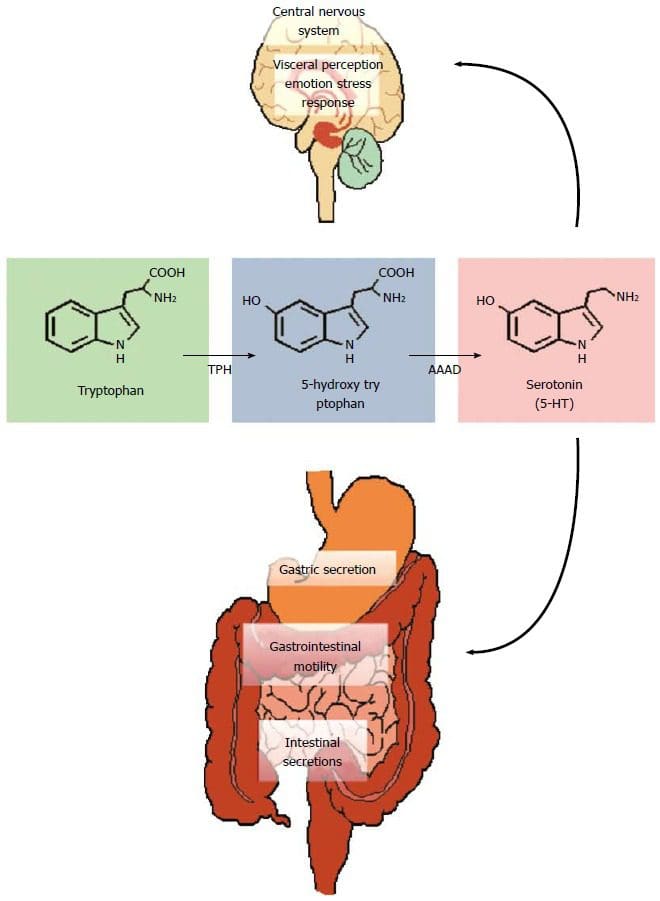
Excessive Alcohol Consumption
Every adult enjoys alcohol once in a while. Yes, it�s one of those beverages that help you relax a bit after a long day, however, too much of it can lead to alcohol abuse and addiction. So, did you know that consuming that much alcohol is bad for your heart, liver, and brain; thus hurting your gut health and giving you dysbiosis?
One study stated, that the alcoholics with dysbiosis had a lower median abundance of Bacteroidetes and a high abundance of Proteobacteria. The ones that weren�t alcoholics were not affected by the study.
However; there is some good news on limiting yourself to alcoholism and that it can be beneficial to your gut bacteria. If you moderately consumed red wine responsibly, the polyphenols in the wine can help benefit your gut flora. So, enjoy a glass of wine once in a while as a small treat that should not be taken for granted.
Inadequate Sleep
In one of the previous articles, we talked about how to achieve a good night sleep through herbs. When we get little to no sleep through our hectic lives, it affects us through various health problems, including heart disease and obesity. In a 2016 study, researchers discovered the effect of short-term sleep deprivation on the gut microbiota after two days.
When our body doesn�t receive the recommended 8 hours of sleep, our gut takes a huge toll as we feel sluggish and exhausted. So, to make sure that our gut microbiome will be taken care of, we recommended to turn off your electronical devices at least 30 minutes before you get ready to settle down for the night. Turn off all the lights, and don�t drink any liquids at least two hours before bed, close your eyes and take a deep breath in a meditative state, and relax as you drift off into slumber town.
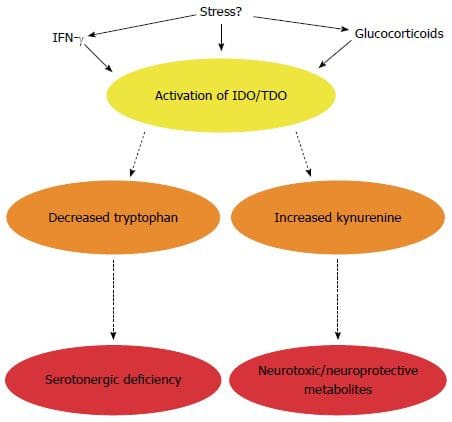
Inadequate Exercise
Through our fast-paced lifestyle and stressful jobs, it�s hard to find time to exercise. But when we actually do find time to exercise, not only do our minds feel good; but our body and gut feel good as well. However, things always come up when we are in an exercise routine and we have to skip exercising altogether. It happens to all of us and it�s hard to pick up where we left off when we tried to exercise.
When we don�t exercise at least a couple of times out of the week, our bodies take a huge toll on us as we gained weight, our stress is way too high, and we have a higher chance of getting a chronic disease. When this happens our gut flora is a huge disadvantage. Here at the clinic, we strive to inform our patients about the importance of exercising and that it not only changes their lives but also changes their mood entirely.
However, don�t just go into a hard exercise routine where you will injure yourself. Start off with a low-intensity workout then build it up as you go because your gut flora will thank you for it.
As a final say, we here at Injury Medical want to keep you informed on nutrition and ways to help you improve your ailments with these 5 surprises. But to also educate you on what may be hurting your gut. With these surprises and slight changes to your daily life, your gut will be thanking you for the long haul.
NCBI Resources
According to evidence from a 2016 research study, the gut�s immune system is fundamental towards preventing a variety of diseases and it may often contribute to metabolic disorders. However, it might also help provide a treatment goal when observing systemic inflammation in insulin resistance. Moreover, modified gut immunity has been linked with changes to the gut microbiota, intestinal barrier function, gut-residing immune cells, and resistance to antigens which enter the gastrointestinal, or GI, system. Although this has been previously believed to raise the danger of esophageal ailments including, pathogenic infections and chronic inflammation, which may ultimately lead to chronic health issues.

by Dr Alex Jimenez DC, APRN, FNP-BC, CFMP, IFMCP | Nutrition, Skin Health
The most important thing about summer is the food. Hotdogs and burgers on the grill and the seasonal fruits and vegetables that are ripe for the picking.� As much as we love the summer sun, it is still dangerous and can be harmful to our skin. We still put on sun cream, wear hats, and wear sun-protective clothing, but, did you know that certain foods can help heal your skin from sun damage and when possible can be eaten raw.
In the previous article, we talked about the 9 nutrients your skin needs to be protected from the harmful sun�s rays. Here is the top 9 food that will protect you from the sun and perfect for the summer.
Guava:
When we think of vitamin C, our minds think of any citrus fruit like oranges, lemon, limes, and grapefruit. But did you know that guava contains vitamin C as well? In fact, guava contains about 5 times more of vitamin C as much as any citrus fruit.
Guava contains about 228.3 mg of vitamin C and has antioxidants that attack free radicals and helps boost your immune system. Vitamin C has been known to battle scurvy. Plus guava can help improve your skin. By eating the fruit or using the guava leaves, your skin will be toned and the antioxidants from the fruit can keep your skin glowing, fight wrinkles and reduce signs of premature aging.
Sweet Potato:
Who doesn�t love potatoes? We eat them as fries, baked, saut�ed, mashed and use them as filling for pies. The sweet potato is no exception. There are many variations of sweet potatoes as they come in orange, white, and purple, depending on where you get them from and which region.
The sweet potatoes we are familiar with have an orange hue due to the carotenoids; which gives us that lovely orange color and has antioxidants to protect our skin from sun damage. Not only that but; sweet potatoes are very high in vitamin A, which is very good when they are cooked. Some people say that potatoes are known to be very starchy and can be used to soothe a sunburn by drawing out the heat from the skin.
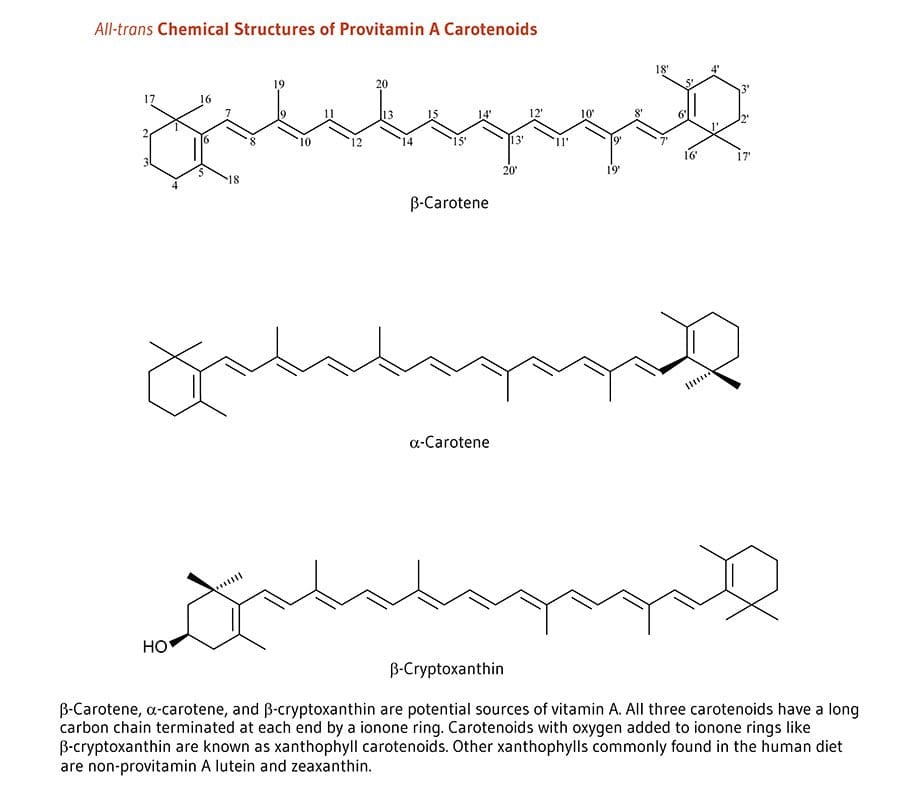
Strawberries and Blueberries:
Both of these berries are great on their own but together, they are the dynamic duo to help our bodies combat the sun. Blueberries are richly filled with antioxidants as they combat the free radicals in our systems and can reduce the chances of cancer showing up.
Strawberries are really great as they are called �nature�s natural sunblock.� They contained about 108% of vitamin C as well as ellagic acid, which cleans up the free radicals and reduce sun-damaged pigmentation.� The Journal of Agricultural Food Chemistry stated that strawberries have anthocyanins, which gives the fruit its lovely red color to protect our cells.
Green Tea:
Who doesn�t love green tea? Not only it contains L-theanine, but it has many astounding health benefits that are wonderful and protects our body. Green tea can be consumed or used as a topical cream to soothe and hydrate your skin from the harsh sun rays. Green tea is jammed packed with vitamins B2 and E, as well as large amounts of polyphenol including, EGCG (Epigallocatechin Gallate).
These polyphenols help our inflammatory system repair our DNA from anything harsh in our bodies. Plus green tea has been known to lower the risk of various types of cancers.
Oatmeal:
Oatmeal is one of those foods that we all eat for breakfast. However, did you know that oatmeal can be used to soothe sunburns and exfoliate sun-damaged skin? Not only that but when oatmeal is finely grounded it is known as �colloidal oatmeal.�
You may have seen this type of oatmeal in the health/medical section in your local stores and it may be called, �Aveeno.� �Colloidal oatmeal has been approved by the FDA since 2003 and has been used as a topical ointment for anyone with eczema. Anyone with eczema experiences an abundance of itchiness when they are overly exposed by the sun�s rays or due to the heat of the summer knows this all too well.
With colloidal oatmeal, it helps relieve the symptoms of eczema by being applied with water and gently patting the topical on the source of eczema to lower the inflamed skin, thus calming it down.
Cucumber:
Cucumbers are used for anything that we can think of. In the spa, in our salads, or as a wonderful snack. This green vegetable is packed with vitamins C and K as well as, caffeic acid and potassium. Not only that but cucumbers are made up of 96% of water, which is very refreshing and great for the skin. Since our bodies lose water when we sweat and cucumbers actually replenishes our water intake and�helps cool off our bodies when we are sunburned.
Tomatoes:
Just like strawberries, tomatoes contain lycopene, which gives tomatoes that gorgeous red color and has vitamins C. K1, and B9 and potassium. Tomatoes can be eaten raw and are rich with antioxidants that help balance our bodies pH balance. As well as, protecting our skin from the sun.
Watermelon:
Oh, watermelon� not only you are the most consumed fruit for the 4th of July but you are one of the best summer fruits to be consumed. Watermelons contain not only vitamins A, B6 and C; but they also contained lycopene like tomatoes. Which helps our skin from photoaging from the sun but it�s in the top 30 most hydrating foods, next to cucumbers with 92% of water for excellent hydration properties for our skin.
Carrots:
Carrots are not only good for our eyes but did you know that carrots are jammed pack with beta-carotene, which turns to vitamin A when we eat it. Plus the sun exposure gives carrots vitamin C to help us protect our skin. Carrots have a wonderful source of carotenoids to produce photoprotection for our skin health.
Here at the clinic, we strive to inform our patients about the nutrients that food provides to our bodies. As well as, making our patients feel good with whole, nutritious options. Whether it is by adjustments or leading them to different food options for a healthy life, these top 9 foods not only help protect your skin from the sun but they also taste really good. So enjoy the summer months but remember to eat your photoprotective food.
NCBI Resources
A healthy diet is the cornerstone of good health.�You should maintain a diet�that includes lean meats, fresh fruits and vegetables, and whole grains. The key is choosing fresh, seasonal foods that are local to your area. Foods grown in their season have certain vitamins and minerals that the body needs for the time of year in which they are ripe and ready.
Cite
14 Powerful Health Benefits of Guava: https://www.organicfacts.net/health-benefits/fruit/health-benefits-of-guava.html
Authors’ Perspective: What is the Optimum Intake of Vitamin C in Humans?: https://www.tandfonline.com/doi/abs/10.1080/10408398.2011.649149scroll=top&needAccess=true&journalCode=bfsn20&
10 Proven Health Benefits of Blueberries: https://www.healthline.com/nutrition/10-proven-benefits-of-blueberries
Strawberry extract protects against UVA rays: https://www.eurekalert.org/pub_releases/2012-08/f-sf-sep080312.php
Soothe the Central Nervous System with L-Theanine: https://blog.bioticsresearch.com/soothe-the-central-nervous-system-with-l-theanine
10 Proven Benefits of Green Tea: https://www.healthline.com/nutrition/top-10-evidence-based-health-benefits-of-green-tea
Anti-inflammatory activities of colloidal oatmeal (Avena sativa) contribute to the effectiveness of oats in the treatment of itch associated with dry, irritated skin: https://www.ncbi.nlm.nih.gov/pubmed/25607907
Contribution of Water from Food and Fluids to Total Water Intake: Analysis of a French and UK Population Surveys: https://www.ncbi.nlm.nih.gov/pmc/articles/PMC5084017/
Tomatoes protect against the development of UV-induced keratinocyte carcinoma via metabolomic alterations: https://www.ncbi.nlm.nih.gov/pmc/articles/PMC5506060/
Watermelon lycopene and allied health claims: https://www.ncbi.nlm.nih.gov/pmc/articles/PMC4464475/
Photoprotection by dietary carotenoids: concept, mechanisms, evidence and future development: https://www.ncbi.nlm.nih.gov/pubmed/21953695

by Dr Alex Jimenez DC, APRN, FNP-BC, CFMP, IFMCP | Skin Health, Supplements
Everyone in the world wants healthy skin. We see it advertised on television with lotions and vitamin supplements. When we exercise and change our eating habits, we see our skin getting firmer with the foods we consume. However, whenever we are stressed, anxious, consuming junk food, or staying out in the sun too long; our skin takes a huge toll on our body. Our skin is the largest organ that covers our entire skeleton structure. When we expose our skin to harsh environments or have skin ailments that we contracted during our birth, our skin is depleted with the certain nutrients that our skin needs.
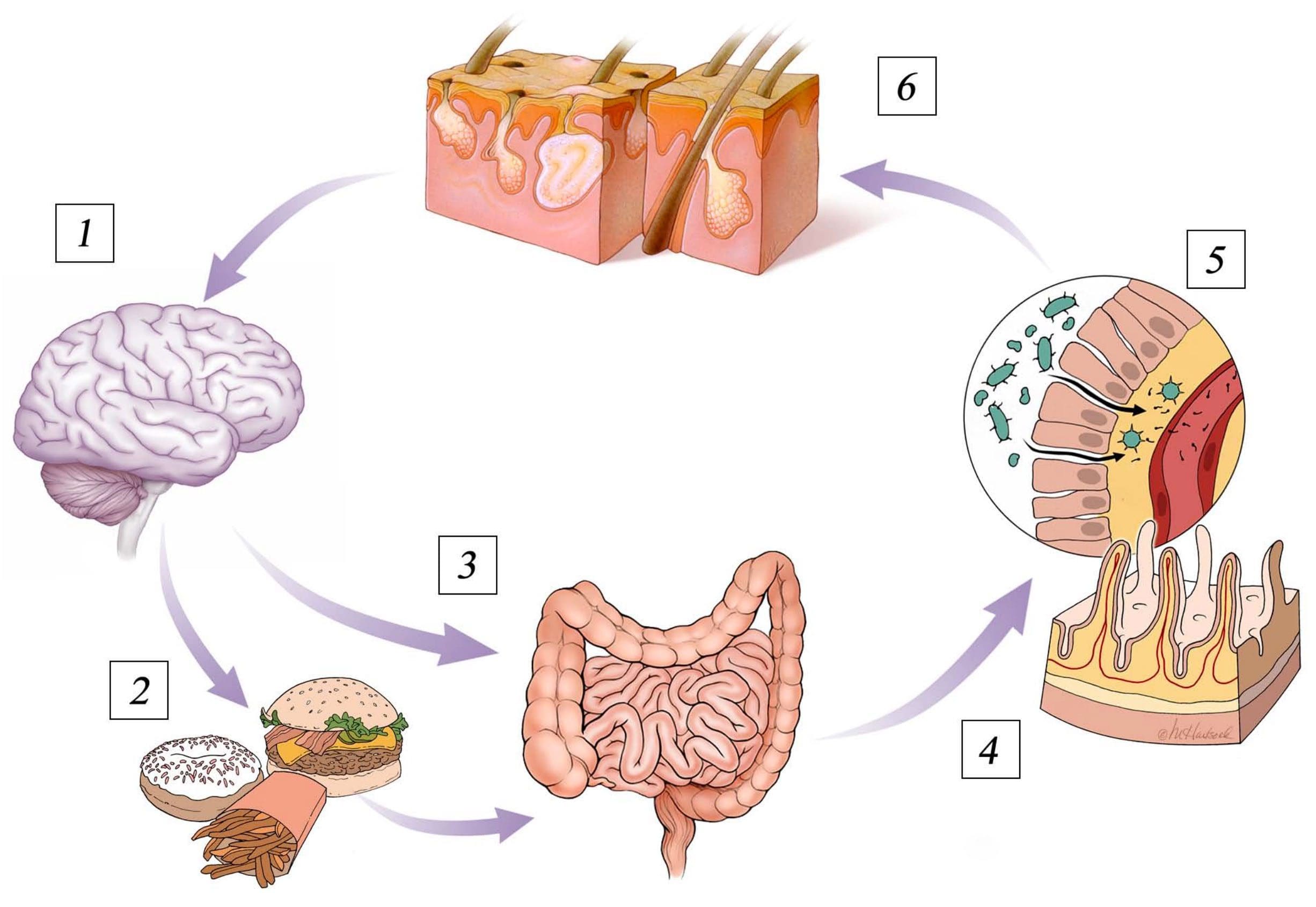
Glutathione:
Glutathione is known as the �wonder drug� for skin lightening. For some darker toned individuals, it will lighten up their natural melanin. This stigma has been popularized by media influences so people can have �porcelain skin.� However, glutathione actually made up of three amino acids:
- Glutamine
- Glycine
- Cysteine
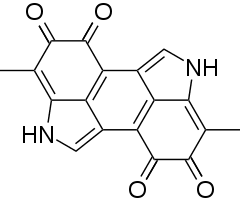
Melanin
This powerful antioxidant fights off free radicals in our immune system and is compatible with Vitamin E and C. For a natural way to make sure that your body keeps the glutathione nutrients when you get older with age, here are some vegetables that are enriched with glutathione:
- Garlic
- Onions
- Avocado
- Cabbage
- Okra
- Spinach
- Kale
- Cauliflower
Omega-3:
Omega-3s is one of the most common supplements that is known for healthy skin. This supplement keeps the body healthy as well as preventing inflammation. Omega-3s are mostly in:
- Fish
- Legumes
- Walnuts
- Avocados
- Eggs
- Spinach
But, there are certain limitations on taking Omega-3 supplements if you have a seafood allergy or an egg allergy. People with these types of food allergens can talk with their physician about taking the omega-3 supplements in a pill form in low dosages or eat omega-3 enriched food.
Other patients with omega-3 deficiency have been known to have psoriasis, thus using a topical lotion infused with omega-3s have been known to calm down the inflammation.
Vitamin E:
Vitamin E is one of the oldest and most trustworthy supplements that has been used for 50 years and more in dermatology. This supplement works together with Vitamin C to combat against the sun; which is harmful to our skin.
Certain food groups that contain Vitamin E and Vitamin C are excellent sources for your overall health.
Glucosamine:
This supplement combined with chondroitin has been the combo duo to improve the hydration of the skin as well as reducing wrinkles and healing wounds on our skin.
Biotin:
Biotin is the three-for-one supplements that target your nails, hair, and skin. This supplement can be found in vitamin pills at your local stores and is highly recommended by dermatologists. However, some people have biotin and zinc deficiency that can be linked to skin abnormalities, thus, biotin plays an important role in our skin health.
You can either take the vitamin pill or incorporate certain food groups like eggs, nuts, whole grains, some dairy products, and certain vegetables in your diet to get the beneficiary nutrients to keep your skin healthy.
Niacin:
Also known as vitamin B3, has been known to support skin health. This nutrient has many beneficial effects to promote skin wellness. It is one of the most essential nutrients we consume since our bodies can�t produce it on their own. Some of the food groups are in the meat department and vegetarian department:
- Mushrooms
- Potatoes
- Legumes
- Whole grains
- Meat
- Fish
- Eggs
- Milk
Vitamin A:
Vitamin A is filled with nutrients as it contains beta-carotene, thus it is mostly fruits and vegetables that contain this supplement. This supplement plays an important role as it helps repair any skin deficiencies and eye health. Some of the foods that boost up vitamin A are:
- Carrots
- Broccoli
- Cantaloupe
- Squash
Vitamin C:
Vitamin C is one of the most top tiers of improving skin health and has many beneficial factors in our immune system. Some patients develop scurvy when they don�t have enough vitamin C in their system. It is mostly found in citrus fruit, which is one of the best ways to consume the vitamin into your system.
But, there is a catch when you are taking vitamin C. Vitamin C when exposed to light, can oxidize and become unstable. So if you are taking the supplement, it should be stored in a dark place and the PH should be at 3.5.
Zinc:
Zinc is one of the supplements that support healthy skin. This micronutrient can protect our skin from the sun and supports our inflammatory system. Some of the food that actually can help us prevent sun damage and give us a zinc supplement boost include seeds, meat, shellfish, dairy and dark chocolate.
When our skin needs these 9 nutrients, they are thanking us for taking the time to get the necessary supplements to make sure our bodies are still functional and that we live a long healthy life. Granted that the media has televised about many ways to promote skin health, but it actually starts with eating the right foods that our body craves. When we eat processed food and ingest artificial sugars into our bodies, we feel sluggish, our skin takes a toll on the lack of nutrients we are not giving and so many health problems that we will face.
Yes, we can take topical creams and lotions to nourish our skin and combat the dryness that our skin faces. But that can only go for so long unless we change our eating styles. Some people may freak out because they hear the word, �diet� and are limited to what they can eat. However, when it�s a health issue and our physicians tell us that we need to eat healthier, we give it a go. Therefore, eating right is a lifestyle choice and it starts with these 9 nutrients to make sure our largest organ is taken care of as well as the rest of our body system. When we cut back on the bad food and focusing on good food, our bodies feel so much better.
NCBI Resources
Living a healthy lifestyle and eating your basic food groups; whether it be plant-based or omnivorous, as well as, exercising a couple of times out of the year. A bad healthy lifestyle is eating processed food and not exercising, which leads to obesity and cardiac arrest. Depending on the person and the efforts that they are willing to maintain a healthy lifestyle, they can achieve longevity by taking care of their gut first and foremost.
Cite
Decreased skin-mediated detoxification contributes to oxidative stress and insulin resistance: https://www.ncbi.nlm.nih.gov/pmc/articles/PMC3415238/
Glutathione for skin lightening: a regnant myth or evidence-based verify?: https://www.ncbi.nlm.nih.gov/pmc/articles/PMC5808366/
Study on the use of omega-3 fatty acids as a therapeutic supplement in the treatment of psoriasis: https://www.ncbi.nlm.nih.gov/pmc/articles/PMC3133503/
Protective effect against sunburn of combined systemic ascorbic acid (vitamin C) and d-alpha-tocopherol (vitamin E): https://www.ncbi.nlm.nih.gov/pubmed/9448204/
20 Foods That Are High in Vitamin E: https://www.healthline.com/nutrition/foods-high-in-vitamin-e
Glucosamine: an ingredient with skin and other benefits: https://www.ncbi.nlm.nih.gov/pubmed/17716251
Skin manifestations of biotin deficiency: https://www.ncbi.nlm.nih.gov/pubmed/1764357
9 biotin-rich foods to add to your diet: https://www.medicalnewstoday.com/articles/320222.php
Nicotinic acid/niacinamide and the skin: https://www.ncbi.nlm.nih.gov/pubmed/17147561
20 Foods That Are High in Vitamin A: https://www.healthline.com/nutrition/foods-high-in-vitamin-a
Topical L-ascorbic acid: percutaneous absorption studies: https://www.ncbi.nlm.nih.gov/pubmed/11207686
Innovative uses for zinc in dermatology: https://www.ncbi.nlm.nih.gov/pubmed/20510767

by Dr Alex Jimenez DC, APRN, FNP-BC, CFMP, IFMCP | Gut and Intestinal Health
Vibrant America is at the forefront of modern medicine and is a leader in autoimmune diagnostics. Vibrant America has the ability and technology to get high-quality, accurate test results down to the peptide level.
One of the many tests we utilize from Vibrant America at Injury Medical & Chiropractic Clinic is Food Sensitivity. With this test, we are able to analyze 96 of the most common foods that are consumed. This is important because food sensitivities can occur hours or days after the food is consumed. Many individuals who suffer from digestive orders, migraines, weight gain, and inflammation might not realize it is from food sensitivities.
Why test for Food Sensitivity?
Not only do food sensitivities leave you with uncomfortable side effects days after ingestion, but they are damaging your gut. In a healthy gut, the intestinal lining will provide immunity to food antigens. The food we eat is not supposed to cross the intestinal barrier. However, in an unhealthy gut, the intestinal lining becomes damaged due to inflammation and an under abundance of healthy flora. This allows food particles to pass through into the bloodstream which then causes an IgG antibody response. This is commonly referred to as a “leaky gut”. This can result in further inflammation and can contribute to some diseases.
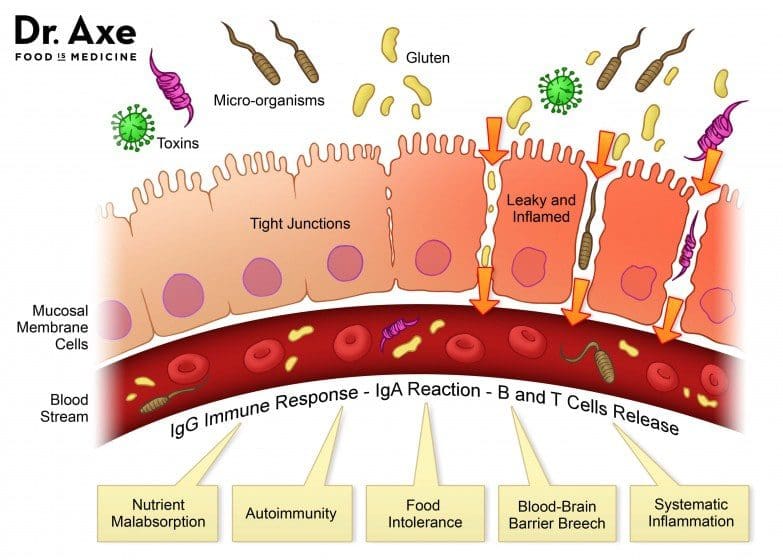
What Is Leaky Gut Syndrome And How Do You Fix It?
When to test:
At Injury Medical, we want all of our patients to feel their best. On top of chiropractic care, we also offer functional medicine. When a patient mentions to us that they are having symptoms correlated to “leaky gut” such as abdominal pain, bloating, gas, skin itchiness, rashes like eczema, nausea, vomiting, joint pain, muscle stiffness, or feeling weak, we recommend running a food sensitivity panel.
How it works:
Once we sit down and have a detailed conversation, we send you to the labs with a “kit”. This “kit” provides the phlebotomist with everything they need in order to draw blood for the tests we order.
From here, the blood gets sent to Vibrant America. The blood is then examined all the way down to the peptide level. This allows a team of clinicians to discover the IgG and IgA antibody numbers in reaction to 96 foods (including dairy, meat, seafood, fruits, vegetables, grains, nuts, etc.).
Next, the results are sent back to us at Injury Medical Clinic. Dr. Jimenez and I ( Kenna Vaughn, Senior Health Coach), study these results to determine a proper treatment protocol. In addition to this, we have a team of clinicians that review each case with us, in order to fully understand what each result looks like and how to best approach it with the patient’s specific lifestyle.
Below is an example of how a patients test results would look:

Why this works
As mentioned above, food sensitivities have a delayed response. This testing works because it allows us to see what foods are responsible for the symptoms/reactions without the patient having to do an elimination diet.� With these results, the patient can start to make adjustments to their diet with our help in order to start feeling better and reducing their symptoms. The key to a healthy life is a healthy gut.
No one should have to live with uncomfortable symptoms or pain. If you or someone you know is experiencing these symptoms, come into Injury Medical Clinic where we can assess your needs and help you get on track to feeling better! – Kenna Vaughn, Senior Health Coach
Disclaimer: It is important to remember that food sensitivity testing and food allergy testing are not the same. Food allergies involve an IgE antibody and are an immediate reaction and can occur within minutes.











































